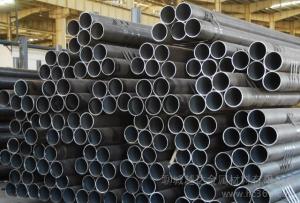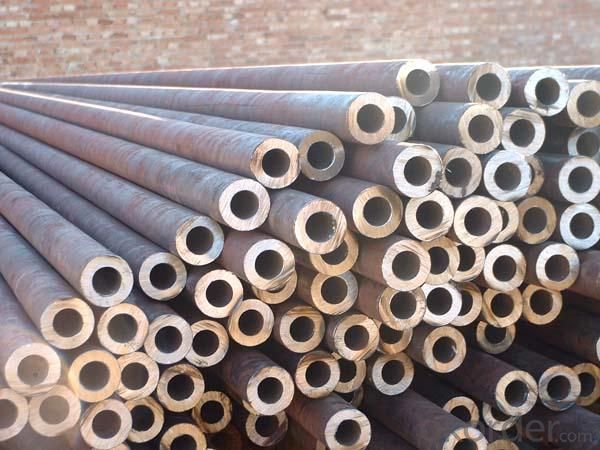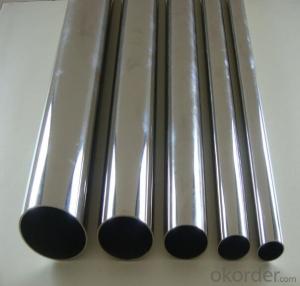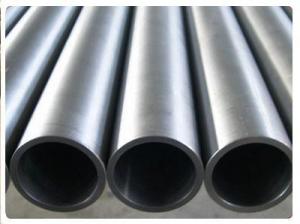Seamless Steel Pipe for Industrial Gas Cylinder
- Loading Port:
- China Main Port
- Payment Terms:
- TT or LC
- Min Order Qty:
- 5mt m.t.
- Supply Capability:
- 5000 Tons Per Month m.t./month
OKorder Service Pledge
OKorder Financial Service
You Might Also Like
Seamless Steel pipes
Application of Seamless Steel Pipe for for Industrial Gas Cylinder
The company products including seamless steel gas cylinder
for industry and medical gas use. We can make cylinder
Standard of Seamless Steel Pipe for for Industrial Gas Cylinder
apply to standard of DOT3AA, JIS8241, EN1964,ISO9809,GB5099, KSB6210.
Certificate of Seamless Steel Pipe for for Industrial Gas Cylinde
CCS,BV, LLODY'S, ABS.
Description of Seamless Steel Pipe for for Industrial Gas Cylinde
Standard | GB5099 |
Material | 34Mn2V/37Mn/30CrMo |
Nominal Diameter | 219/232/267/279/325(mm) |
Water Capacity | 20-80(L) |
Nominal Height | 815-1780(mm) |
Nominal Weight | 30.5-103(kg) |
Service Pressure | 15/20(MP) |
Wall Thickness | 4.7-7.0(mm) |
Packing of Seamless Steel Pipe for for Industrial Gas Cylinde
Black paint or varnish ,plastic caps with the both end
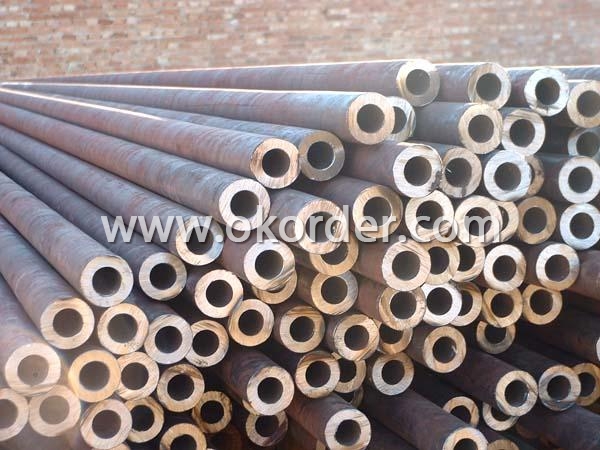
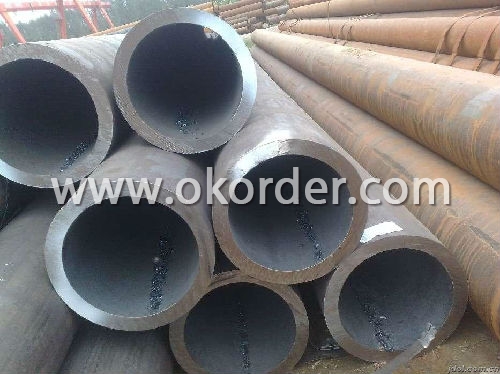
- Q: How are steel pipes used in airport infrastructure?
- Steel pipes are commonly used in airport infrastructure for various purposes. They are used in the construction of runways, taxiways, and aprons to provide a strong and durable foundation. Steel pipes are also used for drainage systems, fuel pipelines, and fire suppression systems within the airport premises. Additionally, steel pipes are used in the construction of airport buildings, such as hangars and terminals, for structural support and plumbing systems. Overall, steel pipes play a crucial role in ensuring the safety, efficiency, and functionality of airport infrastructure.
- Q: How are steel pipes inspected for compliance with industry standards?
- Steel pipes are inspected for compliance with industry standards through various methods such as visual examination, non-destructive testing techniques like ultrasonic testing, magnetic particle inspection, and radiography. These inspections help ensure that the pipes meet required specifications and quality standards, ensuring their integrity and safety for use in various industries.
- Q: How do you solder purple copper plate and steel tube?
- When the copper and copper tube size is too large, argon welder welding, DC argon arc welding machine, of course, when DC argon arc welding welding belongs to welding, argon arc welding of brass with Wei Odin 204S welding, the argon arc welding wire for gas welding is not brass wire, this concept must be clear, the wire diameter of 2 80-120A, welding current parameters, if the copper thickness is relatively thick, with a red copper welding after welding preheating in advance.
- Q: Will the steel tube dance?
- Pole dancer performing double pole dance performance is much higher than single pole dancing difficult, because not only refers to the double pole dance together the two pole dance, two people should pay attention to the dance and tube movement, if two people do not fit to dance moves and skills on the tube action, you jump you. I jump, that wasn't a real double pole dance, dance like a double tube. If the two dance movements and pipe movements are not good enough or not natural enough, they will destroy the effect of the whole dance and make the audience feel that the dance is chaotic and not beautiful, so it is better to see a single pole dance. But the dancer's double pole dance performance is good, more powerful than single pole dance, and more aesthetic and artistic.
- Q: What is the process of coating steel pipes?
- The process of coating steel pipes involves several steps. First, the pipes are cleaned to remove any dirt, rust, or other contaminants. Then, a primer is applied to enhance adhesion and provide a protective layer. Next, the pipes are coated with a specialized coating material, such as epoxy, polyethylene, or zinc, depending on the desired level of corrosion resistance. This coating is applied using various methods, including spraying, dipping, or wrapping. Finally, the coated pipes undergo a curing process, which allows the coating to harden and form a durable barrier against corrosion.
- Q: Can steel pipes be used for underground water supply networks?
- Steel pipes are a viable option for underground water supply networks; they possess qualities such as durability, strength, and corrosion resistance. These pipes are commonly employed due to their ability to endure high pressure and bear the weight of the soil and other external forces. Furthermore, steel pipes come in a range of sizes and can be easily welded, making them suitable for diverse water supply system needs. Nevertheless, it is crucial to consider factors like soil quality, the presence of corrosive substances or chemicals, and the necessity of routine maintenance to guarantee the long-lasting effectiveness of steel pipes in underground water supply networks.
- Q: Can steel pipes be used for underground sewage treatment plants?
- Indeed, underground sewage treatment plants can utilize steel pipes. These pipes are frequently employed in underground settings due to their ability to endure, their strength, and their resistance to corrosion. They can withstand the harsh conditions found underground and effectively transport sewage within the treatment facility. Furthermore, steel pipes can be tailored to meet the specific needs of the sewage treatment plant, including varying diameters and wall thicknesses to ensure proper flow and drainage. Additionally, these pipes can be coated or lined with protective materials, enhancing their resistance to corrosion and prolonging their lifespan. All in all, steel pipes are a dependable and suitable option for underground sewage treatment plants.
- Q: How do you calculate the pipe flow velocity for steel pipes?
- To calculate the pipe flow velocity for steel pipes, you can use the formula: Velocity = (Flow rate / (π * (Diameter/2)^2)). This equation takes into account the flow rate of the fluid through the pipe and the diameter of the steel pipe.
- Q: How are steel pipes connected to other materials like concrete or plastic?
- Steel pipes are commonly connected to other materials like concrete or plastic through various methods. One common method is through the use of fittings. Fittings are specialized components that facilitate the connection between different materials or pipe sections. These fittings come in various shapes and sizes, such as elbows, tees, reducers, and couplings, and they are designed to provide a secure and leak-proof connection. When connecting steel pipes to concrete, one method is to use concrete anchors. These anchors are embedded into the concrete structure and provide a stable base for securing the steel pipe. The pipe is then attached to the anchor using clamps or brackets. Connecting steel pipes to plastic materials can be achieved through the use of transition fittings. These fittings are specifically designed to join steel pipes with plastic pipes. They typically feature different connection mechanisms on each end, such as threads or compression fittings, allowing for a secure and reliable connection. In some cases, steel pipes can also be connected to other materials using welding techniques. Welding involves melting the ends of the steel and the other material together to create a strong joint. This method is often used for connecting steel pipes to steel structures or components. Overall, the connection of steel pipes to other materials like concrete or plastic requires the use of specialized fittings, anchors, or welding techniques. These methods ensure that the connection is secure, durable, and able to withstand the demands of the application.
- Q: How are steel pipes used in the construction of sewer systems?
- Steel pipes are commonly used in the construction of sewer systems due to their durability and strength. They are used to transport wastewater and sewage from buildings to treatment plants or disposal sites. Steel pipes are resistant to corrosion and can withstand high pressure, making them ideal for underground applications. Additionally, their smooth interior prevents clogs and blockages, ensuring efficient flow and preventing damage to the sewer system.
1. Manufacturer Overview
| Location | Zhejiang, China |
| Year Established | 2007 |
| Annual Output Value | Below US$1 Million |
| Main Markets | |
| Company Certifications | API;ISO9001 |
2. Manufacturer Certificates
| a) Certification Name | |
| Range | |
| Reference | |
| Validity Period |
3. Manufacturer Capability
| a) Trade Capacity | |
| Nearest Port | Shanghai |
| Export Percentage | 41% - 50% |
| No.of Employees in Trade Department | 300-500 People |
| Language Spoken: | English; Chinese |
| b) Factory Information | |
| Factory Size: | 360,000 Squre meters |
| No. of Production Lines | Above 10 |
| Contract Manufacturing | OEM Service Offered;Design Service Offered |
| Product Price Range | High Average |
Send your message to us
Seamless Steel Pipe for Industrial Gas Cylinder
- Loading Port:
- China Main Port
- Payment Terms:
- TT or LC
- Min Order Qty:
- 5mt m.t.
- Supply Capability:
- 5000 Tons Per Month m.t./month
OKorder Service Pledge
OKorder Financial Service
Similar products
Hot products
Hot Searches
Related keywords
